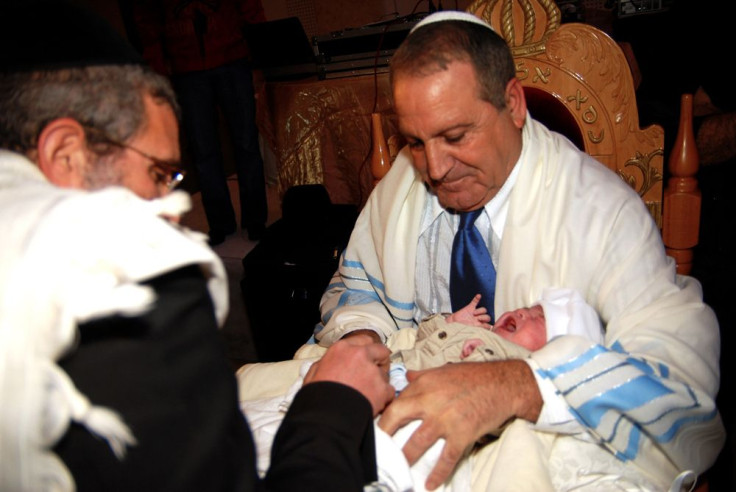Rabbi Who Botched Circumcision Sued For Negligence; Continues Performing Procedure Even After Severing Boy's Penis

It’s every baby boy’s worst nightmare before they even know what a nightmare is. In April, a Pittsburgh rabbi cut too far during a baby’s bris ceremony, severing the newborn baby’s penis. Eight months later, the baby boy’s parents are suing the rabbi for the botched circumcision on the grounds that he acted “with total disregard,” and accusing him of negligence.
Rabbi Mordechai Rosenberg, who is also an Orthodox mohel — or ritual circumciser — performed the circumcision at the Tree of Life Synagogue in Squirrel Hill neighborhood of Pittsburgh when he severed the boy’s penis — a “catastrophic and life-changing injury,” the civil suit alleges, according to The Huffington Post.
The 8-day-old baby was immediately taken to the Children’s Hospital of Pittsburgh where doctors were able to reattach the severed penis, however, it required eight hours of microsurgery, six blood transfusions, and leech therapy. “Leeches help a body accept reattached parts by promoting blood flow and tissue regeneration,” Carrie Sorenson, a clinical pharmacist, told Trib Total Media. In addition to the extensive procedures, the boy also remained in the hospital for two months, and it’s still unknown if he will completely recover.
“Sometimes, it doesn’t always work,” Dr. Joe Losee, a plastic surgeon at the University of Pittsburgh Medical Center who wasn’t involved in the boy’s treatment, told CBS Pittsburgh. “When you’re reattaching a portion where you include nerves, sometimes the nerves don’t heal well beyond where you reattached it. So there are limitations for sure.”
Despite the major slip-up, Rosenberg continues to perform circumcisions, telling CBS that the incident was just a “tragic accident,” and that he’s “trained in this.” Naturally, the baby’s parents were angered at hearing that.
Although circumcision rates have dropped in the U.S., about 58.3 percent of boys still get them done, according to the Centers for Disease Control and Prevention, which only looked at in-hospital rates. These procedures, however, are done within 48 hours of birth, which, according to Rosenberg, aren’t “considered valid by Jewish law.” Ceremonial circumcision, which are performed by mohels with no medical training, are always performed eight days after a baby’s birth.
“This is pretty much unregulated,” David Llewellyn, an attorney who isn’t involved in the case, told CBS. “There’s virtually no regulation of this any place in the United States that I know of. I think the government probably should require some sort of training if this is going to be done.”



























